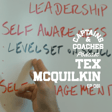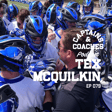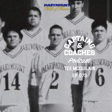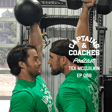
017 - The Missing Manual: Decoding Female Athlete Development
This is episode will transform how male coaches lead female athletes. And Girl Dads, pay special attention.
Join us as performance expert Kristin Weitzel reveals the science-backed strategies that elite coaches use to develop, connect, and communicate with female athletes. She'll break down:
- How to adapt training around biological rhythms for peak performance
- Keys to building unshakeable trust and team culture
- Evidence-based approaches to managing load, recovery, and progression
- Critical developmental windows you need to understand
- Communication frameworks that strengthen coach-athlete relationships
This isn't just about what to do differently - it's about understanding why these approaches work and how to apply them in your specific context. Because when you truly understand female athlete development, you unlock levels of performance you didn't know were possible.
Training Programs - 7 Day Free Trial
Old Bull: https://bit.ly/old-bull-train
Captain's Speed, Strength, & Swagger: https://bit.ly/captains-train
#CaptainsandCoaches #FemaleAthletes #CoachingWomen #WomenInSports #GirlsInSport #AthleteDevelopment #FemalePerformance #WomensStrength #TrainingForWomen #CoachDevelopment #GirlDad #TitleIX #WomensSportsMedicine #FemalePhysiology #WomensHealth



















